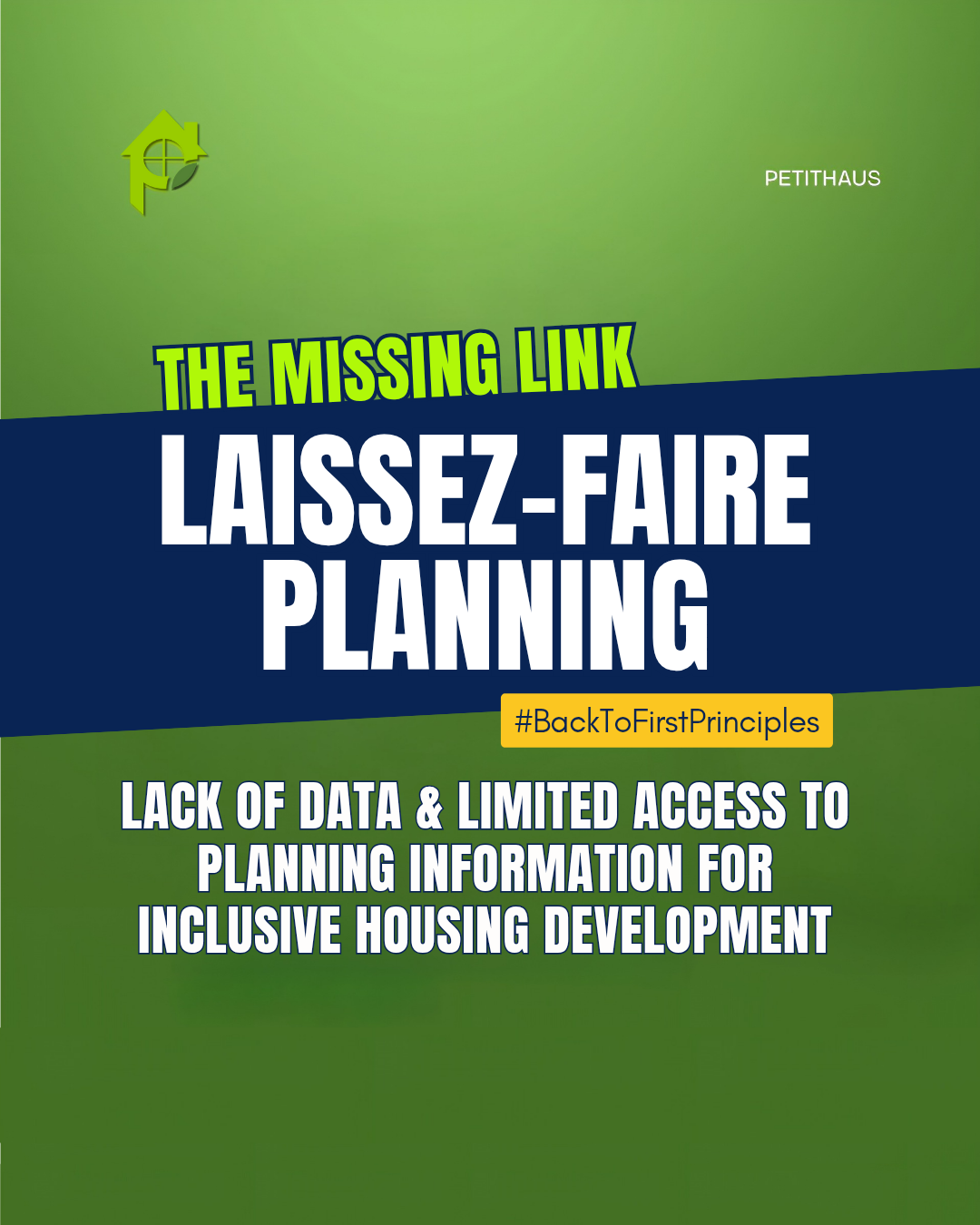
CONTACT US
Affordable Homeownership

SNEAK PEEK
If you’ve ever tried to buy land, process a building permit, or simply request a planning layout in any Nigerian city, you probably already know the problem isn’t just housing. The real issue lies in the system that manages it.
For decades, housing has been discussed as a function of affordability, finance, or supply. But dig deeper, and you’ll find that the root of the crisis isn’t the buildings we see, but rather the structures behind the structures. Our housing framework keeps failing because the institutions meant to plan, regulate, and guide urban development are themselves poorly structured, opaque, and often self-serving.
City planning in Nigeria, particularly in Lagos and other major states, has gradually evolved into a revenue-generating venture, not a developmental service. Planning permits, land use approvals, and even access to basic layout information are often treated as privileges you have to pay, lobby, or plead for, instead of being the public right they are meant to be.
When planning agencies begin to act like businesses, their purpose shifts:
It’s no surprise that every attempt to build structured, affordable housing soon collapses under the weight of bureaucracy, inconsistency, and corruption. You can’t build a solid city on a foundation that keeps shifting.
Another silent crisis is the lack of coordination between government agencies. Urban development doesn’t fail because of lack of ideas. It fails because no one’s systems talk to each other. The Ministry of Physical Planning is disconnected from the Land Bureau. The land bureau doesn’t align with the housing authority. The housing authority doesn’t share data or strategy with the transport ministry.
So, while one department is approving residential estates, another is carving a rail line through the same area, often without informing the public or developers. This is the structural dissonance that defines our governance: each arm working in isolation, often undermining the work of the other.
And in that confusion, ordinary citizens, the very people these systems are meant to serve, lose trust, money, and hope.
Good governance in housing isn’t just about financing or construction capacity. It’s about clarity. People knowing where to build, what is permitted, and what plans exist for the future.
But in Nigeria, even this basic transparency is missing. Simple information, such as city layouts, zoning plans, or future infrastructure routes, is often treated like classified secrets. Resulting in:
When planning becomes opaque, urban disorder becomes inevitable. You can’t have sustainable housing without a transparent system of governance.
This lack of coordination and openness doesn’t just frustrate citizens. It directly inflates the cost of housing. Developers spend months (sometimes years) navigating unnecessary bureaucracy, paying multiple fees to different agencies that rarely communicate. Every delay, every uncertainty, every unofficial “approval” adds a cost.
And that cost trickles down to the buyer or tenant. So when we say housing is unaffordable, we must also admit that it’s being made unaffordable by the system itself.
At its core, planning is not meant to be punitive or transactional. It’s supposed to be a framework for order. A guide for where and how people live, work, and build.
If planning agencies operated with transparency and coordination, housing would not be this chaotic.
Until we fix the system behind the housing, we’ll keep mistaking symptoms for causes. Affordable housing, land reform, public-private partnerships, they’ll all keep failing, not because the ideas are bad, but because the governance ecosystem that supports them is broken.
Nigeria’s housing crisis is a direct effect of its governance crisis. Before we pour another block of cement or announce another “mass housing scheme,” we need to rebuild the foundation of our public institutions. Ensure cohesive coordination, transparency, and accountability.
Because until we fix the system that plans the city, the city itself will never stand.
01.

02.
Category
Discover insights into creating affordable homeownership with PetitHaus.
